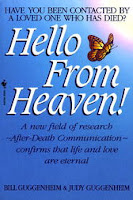Over at CNN.com, Katie Hunt has an article: "Research in pigs shakes up what we know about dying". To summarize, scientists have discovered that cellular functions and blood circulation in pigs can be restored even an hour after their deaths. This could have major implications for humans, especially when it comes to being able to increase the number of available donor organs for those who need them.
Speaking of organ transplants, this reminds me of a story I heard back in the news in the 1990s, when an older woman by the name of Claire Sylvia, who was seriously ill, received a heart transplant from a young man, Timothy Lamirande, who was killed in a motorcycle accident. Soon after the transplant, she developed a serious craving for McDonald's Chicken McNuggets. Unbeknownst to her at the time, Chicken McNuggets were one of the favorite foods of her donor, Tim. This phenomenon has been reported in multiple publications, including Dr. Thomas Verny in Psychology Today, Lorianna De Giorgio in The Toronto Star, and Marcus Lowth at Listverse.com. Of course, the vast majority of organ donor recipients report no changes in their personalities, or preferences, but there seem to be enough cases that this could warrant further investigation.
Between these stories about restoring bodily functions in pigs and organ transplants, I've beginning to realize that the line between "life" and "death" might not be as definitive and crystal-clear as we tend to think. And when I think about it, I have to ask: what is life and what is death, really? Or are we all just on some sort of continuum where it all just kind of blends and blurs together? It reminds me of the saying that "We're all made of star stuff" -- the components and elements that make up the stars in the universe make up our own bodies as well, including carbon, hydrogen, nitrogen, oxygen, phosphorus, and sulfur.
And on a related note, I'm reminded of theologian Philip Yancey, who once wrote that we humans are so limited in our understanding of our world and our universe, and he used this analogy of a supernova in his book "Disappointment with God" to show how a Supreme Creator being could be so much bigger than we realize:
"Now
we understand time as relative, not as absolute. Perception of time,
we are told, depends on the relative position of the observer. Take a
recent example: on the night of February 23, 1987, an astronomer in
Chile observed with his naked eye the explosion of a distant
supernova, a blast so powerful that it released as much energy in one
second as our sun will release in ten billion years. But did that
event truly occur on February 23, 1987? Only from the perspective of
our planet. Actually, the supernova exploded 170,000 years prior to
our 1987, but the light generated by that faraway event, traveling
almost 6 trillion miles a year, took 170,000 years to reach our
galaxy.
And
here is where the higher view of eternity defies our normal
understanding of time. Imagine, if you will, a very large Being,
larger than the entire universe—so large that the Being exists
simultaneously on earth and in the space occupied by Supernova 1987A.
[This
being could observe]
both past (from earth, he saw the supernova explosion of 170,000
years before), present (the
events of 1987 on earth), and future (what was happening on Supernova
1987A “now" that earthlings will not learn about for 170,000
years) simultaneously.
Such
a Being, big as the universe, could, from some
lookout
post, see what is happening anywhere in the universe at any given
time."
I realize that this post almost reads more like a "random stream of consciousness", but it makes me realize how much more there is to life and death than we realize -- it's all very mysterious and very fascinating at the same time, even if I'm still struggling to find the answers. May you, dear reader, find comfort and reassurance, as you too continue to search for answers.









